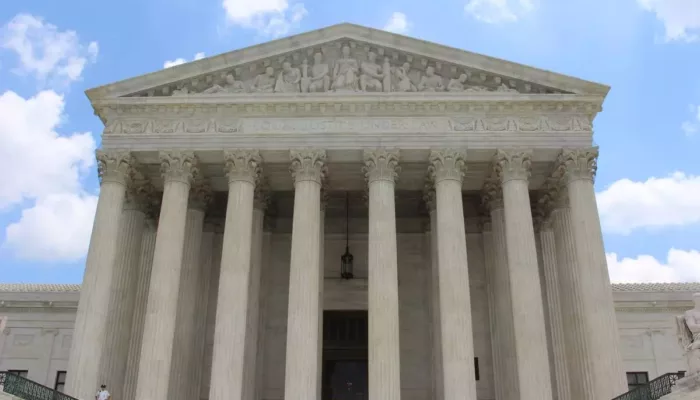For the matter of Carolyn Kloeckner v. Hilda Solis, the Secretary of Labor, the case went all the way to the Supreme Court of the United States. The main question was jurisdictional in nature – where should an appeal go if the Merit Systems Protection Board (MSPB) has dismissed a case but not on the merits?
Case
Carolyn Kloeckner v. Hilda Solis, Secretary of Labor, 568 U. S. ____ (2012).
Facts
Carolyn Kloeckner first filed a complaint with the Equal Employment Opportunity Commission. She alleged there was a hostile work environment, plus she also alleged age and sex discrimination. When her employer charged her with being absent without leave, Ms. Kloeckner then amended her complaint to include retaliation. She never returned to work. As a result, eventually her employer terminated her. Kloeckner challenged her termination while her initial complaint was still pending. This thereby made it a mixed case. Ms. Kloeckner appealed her termination to the Merit Systems Protection Board. However, she then requested a dismissal in order that she could amend her EEOC complaint. The MSPB granted the dismissal to her. They also gave her a specified period for refiling.
When the EEOC determined that there had been neither discrimination nor retaliation, Ms. Kloeckner appealed that decision to the MSPB. The appeal was within thirty days of the EEOC decision. However, it was still ten months after the refiling period the MSPB had set. The Merit Systems Protection Board thereby dismissed the case as being untimely. Kloeckner then filed an appeal in the District Court for the District of Columbia. The case was then removed to the District Court for the Eastern District of Missouri. Then the District Court for the Eastern District of Missouri held that the U.S. Court of Appeals for the Fifth Circuit had exclusive jurisdiction. That was, according to them, because the MSPB had not ruled on the merits of the case.
The Eighth Circuit later affirmed the case, using the same reasoning. See 639 F. 3d 834.
Ms. Kloeckner then petitioned the United States Supreme Court for certiorari.
Issue
Does a District Court or a Court of Appeals have jurisdiction over an employment discrimination claim which the MSPB dismissed without first ruling on the merits?
Opinion
Justice Elena Kagan delivered the unanimous majority opinion. Yes, the United States Supreme Court decided, the district court has jurisdiction. The Court held that there were two relevant sections of Civil Service Reform Act. These both direct mixed cases to the district court rather that the Court of Appeals for the Federal Circuit. Furthermore, there was no legislative history to support a reading of the statutes as fostering any distinction between merits-based and procedural appeals. The Court further held that Ms. Kloeckner’s appeal was timely. This was because she filed it within thirty days of her received notice of a judicially reviewable action.
Result for Kloeckner
A federal employee claiming an agency action appealable to the MSPB violates an antidiscrimination statute listed in 5 U.S.C. § 7702 (a) (1) should seek judicial review in district court. This review should not be sought in the U.S. Court of Appeals for the Federal Circuit. This is the proper procedure regardless of whether the MSPB decided her case on procedural grounds or on the merits.
The case was reversed and remanded to the United States Circuit Court of Appeals for Eighth Circuit.



